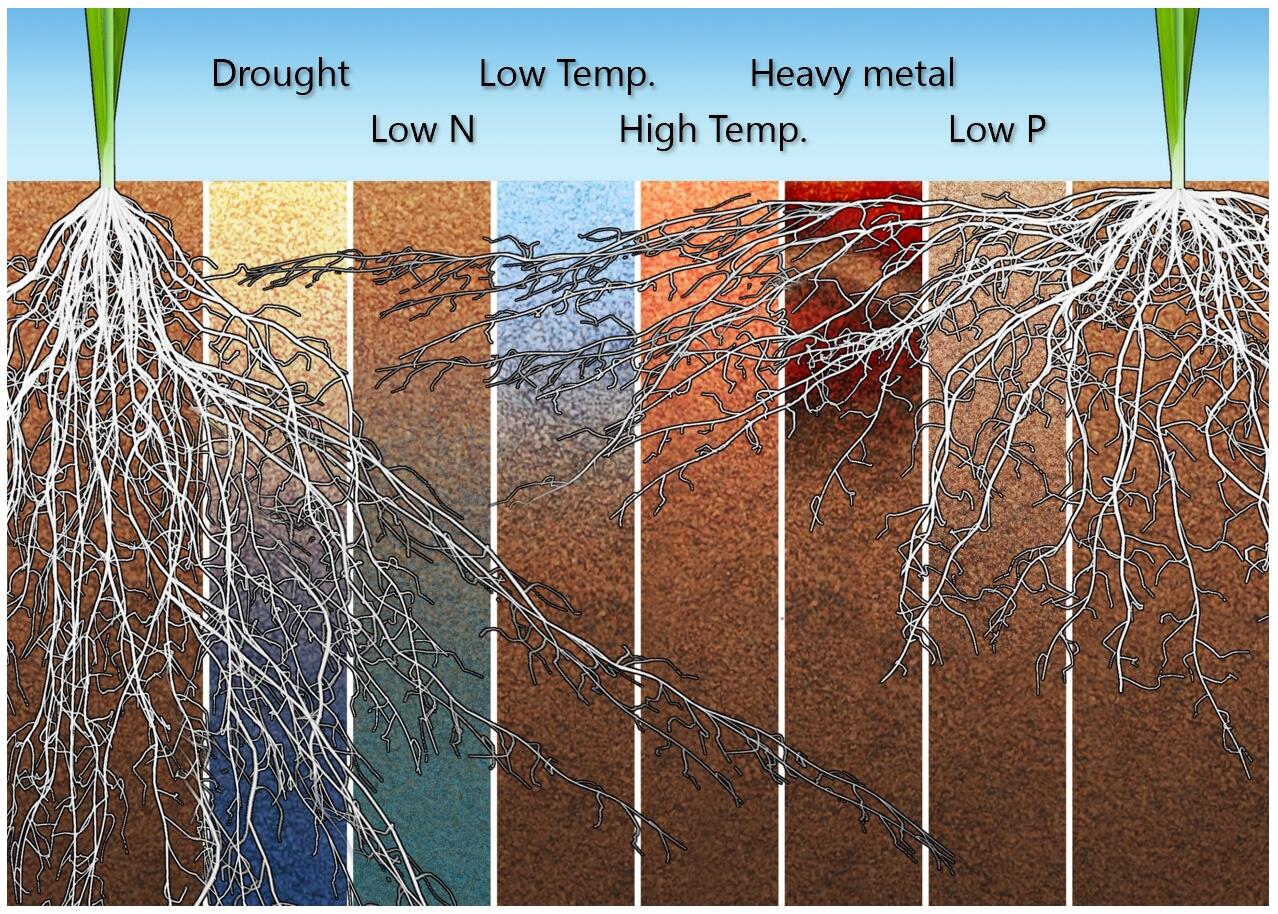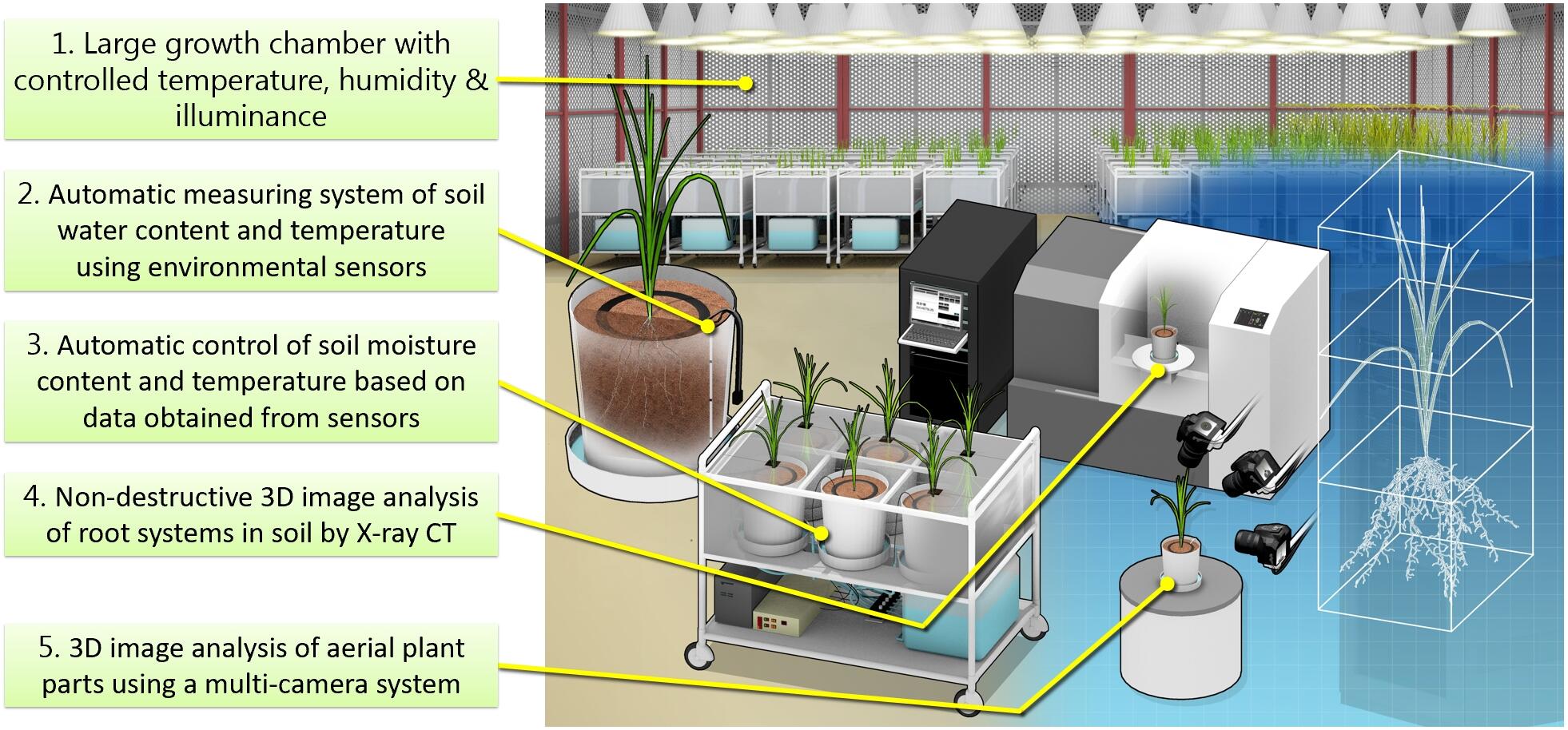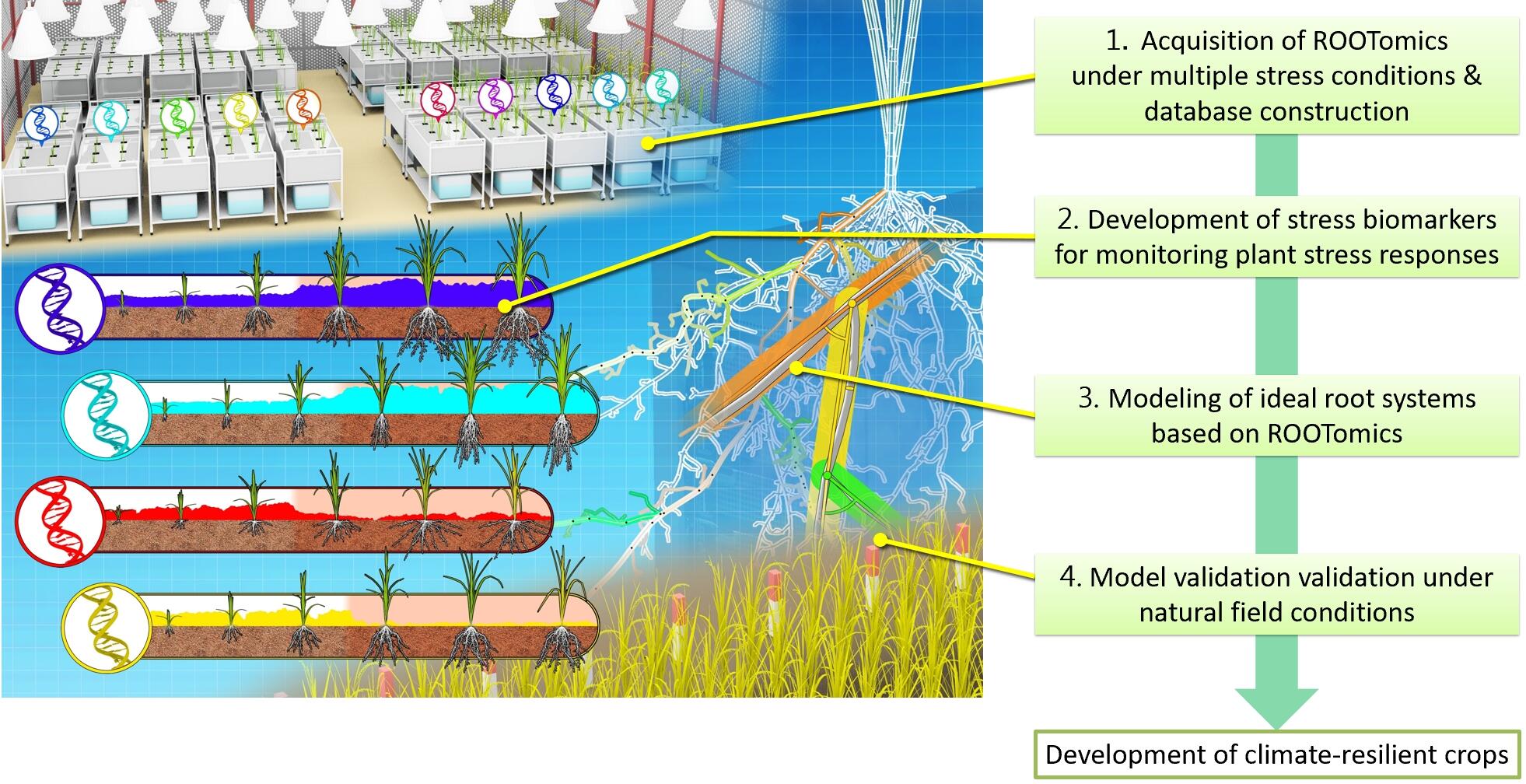In recent years, global environmental changes have caused drought and soil degradation worldwide. To produce crops that are sustainable under such unstable environmental conditions, crop cultivars that are robust, even in the presence of multiple environmental stresses (climate-resilient crops), must be developed.
The genetic improvement of root systems is essential for enhancing crop production under sterile and unstable soil environmental conditions because it is an essential organ system for taking up water and nutrients from the ground, and it is also affected by several soil-based environmental stresses. However, measuring RSAs in the soil is not technically feasible, which severely limits our ability to determine what kinds of root traits are critical for crop production.

We aim to develop a new technology that will allow total-designed breeding by modelling ideal RSAs, which are robust enough to withstand environmental stresses, based on the visualization of roots in soil.
We will develop a non-destructive 3D root phenotyping platform employing X-ray CT. Using this platform, we can then construct new models of the ideal RSAs for different crops using ROOTomics data obtained by phenome and transcriptome analyses. Before constructing ideal RSA models, we will develop stress biomarkers to monitor plant stress responses. Such biomarkers will allow us to discriminate the plants that could withstand environmental stresses. We will design ideal RSA models by incorporating parameters of the RSAs commonly held by robust plants. Finally, we will validate our models of the ideal RSAs under natural field conditions.



